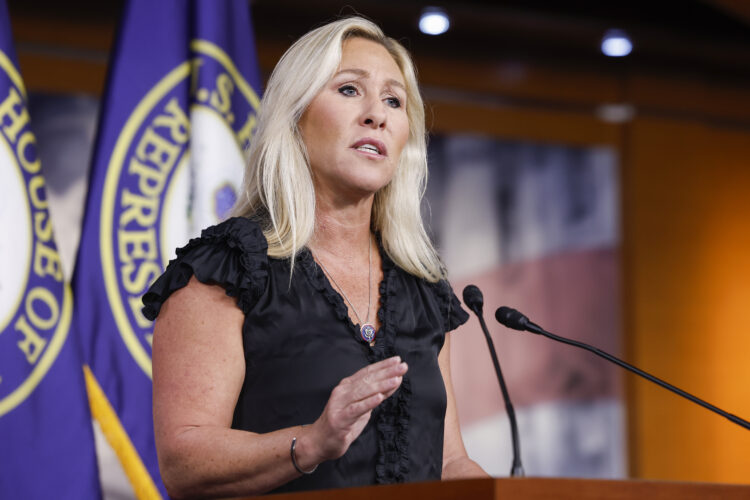By Aaron Miller-
Ignorant ar-right Republican congresswoman Marjorie Taylor Greene told reporters being called a white supremacist was the same as a Black person being called the N-word.
Green expressed his ignorance on Thursday when making reference to a confrontation outside the Capitol the day before with the Democratic congressman Jamaal Bowman, Greene said: “Jamaal Bowman [was] shouting at the top of his lungs, cursing, calling me a horrible … calling me a white supremacist which I take great offense to that.
“It’s like calling a person of color the N-word which should never happen. Calling me a white supremacist is equal to that. That is wrong.”
Being called a white supremacist generally implies that someone holds racist beliefs or supports white supremacy, which is the belief in the superiority of the white race over other racial or ethnic groups. It is a serious accusation that can have significant social, professional, and personal ramifications for the individual being accused.
On the other hand, using the N-word is a racial slur specifically targeting Black individuals. It has a long history of derogatory and dehumanizing use, and its impact can be deeply hurtful and offensive. The N-word has been used historically to demean, oppress, and marginalize Black people. Its usage reinforces racist attitudes and perpetuates a history of discrimination and oppression.
While both being called a white supremacist and using the N-word involve racial issues, they are distinct in their implications. Being called a white supremacist accuses someone of subscribing to a particular ideology, while using the N-word is an act of using a racial slur to demean and dehumanize a specific racial group.
Accusing someone of being a white supremacist implies that they hold and promote beliefs that support the idea of white racial superiority. White supremacists advocate for policies and actions that discriminate against and oppress people of other races or ethnicities. The term is often associated with hate groups and extremist ideologies. Being labelled as a white supremacist can have severe consequences, including damage to one’s reputation, strained relationships, professional repercussions, and social ostracization.
The N-word, on the other hand, is a racial slur historically used to denigrate Black individuals and perpetuate racial inequality and discrimination. Its roots can be traced back to slavery and the systemic dehumanization of Black people. The word has been used to marginalize and oppress Black individuals, reinforcing stereotypes, and promoting racial hatred. Due to its offensive and hurtful nature, many consider the N-word to be taboo and unacceptable in most contexts.
The impact of being called a white supremacist or hearing the N-word can vary depending on the context, the individuals involved, and the historical and cultural factors at play. However, it’s generally recognized that being called a white supremacist carries serious implications regarding one’s beliefs and values, while using the N-word perpetuates a history of racial discrimination and can deeply hurt those it targets.

